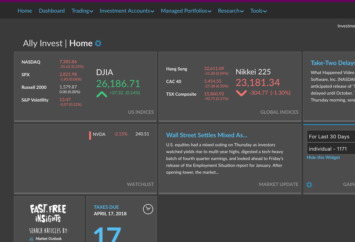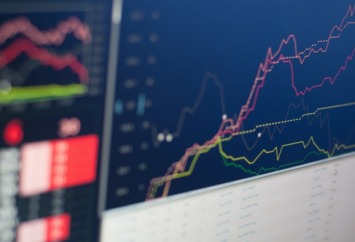I remember the date vividly. The news was abuzz about the upcoming IPO that was coming out…that IPO was on Facebook. Everyone was talking about it and hopes were high by many people that they’d get their hands on some shares. I mean, who wouldn’t want to get some shares? The company has supposedly over 900 million users and is bound to be a successful public company. The hoped-for hoopla was short lived due to a little followed, but growing issue known as high frequency trading that caused chaos on the opening day of the Facebook IPO. Some would argue that the issue of high frequency trading has been a problem since the market plunge back in October 1987 and was seen in causing the Flash Crash in 2010 amongst other instances. So, bear with me as I let my inner trading geek out as we look at the issue of high frequency trading.
What Exactly is High Frequency Trading?
High frequency trading employs highly quantitative algorithms, run by computers, that look to buy and sell securities in a very quick fashion. For a typical high frequency trading firm, the normal holding time for a security is a matter of seconds to several hours at the most. High frequency traders invest in stocks, options, ETF’s, currencies, and futures; any equity that can be traded electronically is fair game to a firm involved in high frequency trading. It is highly unlikely that you’ll find an individual investor involved in such trading as high frequency trading is commonly left to small, but growing firms that are usually trading with their own money.
What Are the Effects of High Frequency Trading?
“So what?” you might be thinking, “how does this affect me as Mr./Mrs. Investor?” The answer is that it can affect you quite a bit. One of the main effects of high frequency trading is that through the aforementioned algorithms they’re able to see how other, more everyday investors are trading milliseconds before they make their own decision. Does this sound right? No, it does not. Better yet, many exchanges also offer minuscule small kickbacks to those traders that arrive first with their orders. So, over time the high frequency trading firm is able to make money through these kickbacks. For anyone who’s seen Office Space, it’s similar to the scam they ran. Yes, these two effects do make me pause and wonder if we should put more regulations on high frequency traders. Some studies have argued that we benefit from high frequency trading as it lowers the price for retail investors and brings liquidity to the market. I am not entirely sold on their argument yet though.
What Are Other Countries Doing About it?
I’ve read numerous articles over the last few weeks about how other countries are dealing with high frequency trading. Each article recounted how many of these countries had modeled their markets after ours and wanted to be like the markets in the U.S. What they all went on to say was they’re seeing what’s becoming of the American market and don’t want to run into similar issues. Countries across Europe, to Australia and Canada are either looking into, or are putting measures in place to regulate high frequency trading. Generally I am not one to think that government regulation is always the best solution. But, what does it say when many of our friends are initiating regulations because they do not want to become like us? What does it say when these firms are forming groups that are lobbying lawmakers to not regulate them? It causes me to sit back and ponder whether or not we would benefit from regulations on high frequency trading.
Should We Just Give Up Investing?
Gone are the days where people line up on the market deciding on what price a stock should be bought and sold at. Does this mean we should all give up on stock investing and bury our heads? My irrational side says yes, to heck with the market and just put my money in CD’s or under my mattress. But, part of being frugal requires us to be informed and make wise decisions with our money. In the end, I am still involved in the market and will be investing in stocks and other investments for years to come. Yes, there are things about high frequency trading that concern me and hopefully some of it does to you as well. The solution though is not to give up on stock investing all together as I see it as a key to saving for my retirement. Part of the solution has to be increased education about how to invest and how your investments are doing. Maybe it also means that you contact your Senator/Congressperson to tell them you think we should have regulations on high frequency trading. At the very least, it should mean that you stay more informed about your investments and what’s going on in the market.
Is this the first time you’ve heard about high frequency trading? Does it cause you to want to be more informed in regards to what’s going on in the market?
Here’s what people are saying
I knew about automated trades and that many companies chose micro trades as a way to limit risk. They would buy at 1 and sell at 1.0001 which is probably a safe trade because whether the price is going up or down there is often a bounce around round numbers. I tried to trade currencies for a while and used a series of small trades too, with strict stop loss and take profit, but as a person it is very stressful, I would rather hold on to stocks for a longer term.
Call me a cynic, but I just think there is too much money involved for governments to really crack down on this type of activity.
I have learned to live with it and just try to catch the movements when they are going in the same direction as me, then get out before it turns. It’s more like gambling than investing, but there can be good gains to be made if you’re careful.
It seems like they are gaming the system to me. Just because something is legal doesn’t necessarily make it right. It seems to me that they are just finding ways to continuously skim money off the top while employing strategies that the average investor isn’t able to use. I don’t like it.
What do you think about investors that buy specialized investment reports where someone has already done research and makes specific stock recommendations? Depending on the analyst publishing these reports, they can be VERY pricey and the average investor isn’t able to access them. Does that make them immoral to use? Just food for thought…
From my perspective, this isn’t all that different. HFTs have the resources to run these trades, and it’s provable that there is way more liquidity in the market than there was 20 years ago before trade automation. I’ve heard increased liquidity described as one reason that retail trading (like eTrade at $7/trade) is so much more affordable than it used to be.
Many have argued that HFT has brought down the cost for the retail investor so they can have better, lower priced access. I don’t know that I completely agree with that, but the argument does have merit. On a side note, most of the larger retail brokerages only have to pay $2-$3 per trade, so they’re making quite a nice profit on the trades when you look at how many most of them execute a day.
In regards to comparing HFT to paid analyst reports, that really is comparing apples to oranges. Often times those reports are pricey like you say, but if you have the money you can get access to many of them. (That by the way is a separate argument of having money vs. not having money and if its fair to give that info only to those with money) The issue with HFT is that most if not all of the traders are actually (so the argument goes) seeing our trades before they place their own. Add to that the fact that they’re now hiring lobbyists to protect against regulation and you can see that many of the fears are not unfounded and do hold water.
I haven’t completely decided where I fall on this issue yet, but I do think there is some cause for concern and that if nothing is done the retail investor will again lose out to the big institutions.
I’ve always known that most transactions were done by computer. But that flash crash last year really opened my eyes as to how terrible things could become even if one little glitch or mistake happens. While there is nothing any of us can really do to turn back the hand of technology, we do have to be aware of our surroundings and possibly even be willing to accept that they days of an 8% average annualized return may be a stretch.
I think that was the first thing that opened up some peoples eyes, although some say it’s what helped cause the crash in 1987. There have been too many instances of it causing major problems for it to not be looked at more in depth. I agree about the 8% return, it does require much more work these days.
I think I’m going with TB and will try the mattress. No, I don’t really understand it but get the general concept. I think people will bend rules as far as they can without breaking them. It’s a lot like that in health care. If I pluck out 5 ingrown eyelashes, which takes about 3 seconds, I can legally charge a fee for each one, which would be hundreds of dollars. I don’t do that, but lots of people do and they are within the law to do so. The legal billing code does not match the level of service, so people take advantage. That’s what drives up the cost for everyone.
I’ve spoken to many people who feel the same way. The key is to not just give up like so many do. I agree that many will just go as far as they can legally without actually breaking the law. That’s real interesting about your line of work. I am sure it’s that way across many sectors, which is a shame because as you said the consumer ends up paying more as a result.
I watched a documentary on HFT a while back. It explained how some of the technology being used is actually far ahead of anything regulators have the possibility of regulating. And I guess those math wizard genius guys are making 300k / year for starters and well over a million for those who know what they’re doing, so I can imagine they’re rounding up their own lobbyist to send to the capitol. Quite honestly I’m afraid of what’s going to happen in this country if we don’t regulate that sort of thing. We already failed with broadband.
I’ll be the first to admit that I don’t know very much about HFT. It is not the first example of where technology supersedes regulator’s ability to regulate! This happens in the Energy industry all the time, as well as Consumer electronics. Big companies such as Apple and Amazon are educating the regulators to their advantage… in this case, why would a company want to educate the regulator when they can make such vast sums of money?! Crazy to think that this goes on and is not just a movie storyline!
I’m not into high frequency trading. For the long-term approach, it’s not the best solution. It’s very costly and requires a disciplinary strategy involving put/call options, limit order, etc to minimize losses and regulate your gains. You have to really know what you are doing and you must know that the money used for HFT is at a high risk of loss. I say, if you are going to do it, use funds that are not for retirement.
You’re right, you do have to know what you’re doing and it does take a lot of money to engage in HFT.
With HFT though, it’s not individuals doing it but institutions that are doing massive amounts of trades in huge chunks. This is a bit different from someone engaging in Day Trading, which I would agree should not be done in one’s retirement accounts. Actually, there are regulations in place to not allow true Day Trading in retirement accounts so investors don’t put too much risk into their retirement investing.




